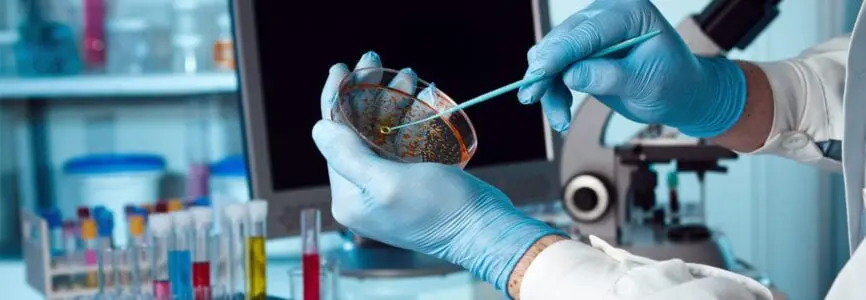Bioethics Forum Essay
The FDA Proposes Roadblocks to Laboratory Diagnostics
The American laboratory industry and its ability to serve patients are being challenged by a Food and Drug Administration (FDA) proposal that will create a new bureaucracy to regulate some of the most important tests that labs perform.
On July 31, the FDA issued a 60-day notice that it planned to issue proposed guidance that would give the agency the authority to regulate clinical laboratory tests developed in certified and accredited clinical laboratories around the country. Laboratory developed tests (LDTs) are best-in-class diagnostics that are developed at individual labs. They are commonly used when there is no FDA-approved test or when a lab makes improvements over an existing kit. LDTs are not sold to other labs or to the public; they are only used by the lab that develops them.
Treating LDTs as medical devices will reduce access to life-saving tests. LDTs are currently regulated by the Center for Medicare and Medicaid Services (CMS) under the authority of the Clinical Laboratory Improvement Amendments (CLIA). Since its inception in 1987, CLIA has been very effective. The FDA, on the other hand, has no native expertise in the regulation of lab tests; it will need to create a massive and redundant bureaucracy to oversee these tests now regulated by CMS and through local and state regulations.
The Scope of Bureaucratic Expansion
If issued, this authority would require that the thousands of highly complex clinical laboratories in the United States, most of which reside in hospitals, submit information to the FDA about hundreds of thousands of distinct tests.
The agency has not yet clearly explained how it will oversee all of these LDTs. However, it appears to plan on developing a process to categorize the tests based on the level of risk that they present. The tests that it determines to be highest risk will have a year to seek approval or clearance from the FDA, once the guidance is finalized. Other tests will be reviewed on a rolling basis, based on the level of risk that the FDA believes they present. As the FDA moves through this process, each of the laboratories that conduct these tests will need to register as manufacturers with the FDA, something they have never done, and each of the subsets of these tests will need to go through an approval process by the agency.
Most of the tests in question have been used in medical practice for many years; others represent the majority of the most compelling diagnostic innovations in the areas of cancer and genetics. Representatives of some of the leading academic medical centers in this country have written to the federal Office of Management and Budget opposing this FDA regulation, stating that it is inappropriate and duplicative of existing regulatory oversight, and indicating that it will significantly hamper innovation and patient care.
There are thousands of highly complex laboratories that perform hundreds of thousands of LDTs. This regulation could potentially require that a portion of these submit full pre-market authorizations to the FDA. Last year, the FDA approved just 21 pre-market authorizations for diagnostic tests. This would represent an unprecedented bureaucratic expansion that the FDA is not equipped to handle.
The Effect on Patients
The immediate effect of FDA regulation of LDTs will be a huge cost burden for consumers and payers, including Medicare and Medicaid. Laboratories will have to build an FDA compliance system in parallel to the current CLIA system.
Innovation will be stifled. Currently, as labs perform tests, they rapidly learn about the diseases they analyze and improve technical aspects of the testing. That learning is built back into clinical care through the rapid development of LDTs. As the scientific literature presents new discoveries, labs incorporate those results into LDTs on a dynamic, evolving basis.
This proposed regulation will bring most diagnostic innovation to a halt, just at a time when the promise of personalized medicine is finally being realized, thanks in great part to LDTs. Interventions based upon the molecular genetics of disease, especially cancer and inherited conditions, require rapid development of unique tests specifically targeted for the disease or drug being studied. Tests including tumor sequencing, which allow oncologists to make life-saving decisions about what chemotherapy to offer, will be threatened. That is true as well for over 3,000 genetic tests for genetic conditions, including cancer (through testing for predisposition genes like BRCA1 and 2), life-threatening but preventable cardiac conditions, carrier states routinely detected by prenatal genetic testing, and thousands of rare genetic diseases for which genetic testing is used to make a diagnosis and allow for family planning.
Under the proposed FDA regulation, tests that now take weeks to develop will take years before they are approved, which will severely compromise current and future improvements in patient care. Requiring FDA approval would result in genomic medicine grinding to a halt, stifling innovation and improvement at the exact time when many patients and families are starting to benefit and when it is now accessible due to policy changes in gene patents and with the decreasing sequencing costs. Millions of patients who currently depend on genetic testing would be adversely affected. The solution is not FDA oversight for LDTs but continued CLIA oversight to ensure that clinical testing that is offered has clinical utility and that laboratories performing LDTs maintain high quality of testing.
Wendy Chung, MD, PhD, is an associate professor of pediatrics at Columbia University Medical Center. A version of this commentary originally appeared on the website of the Center for Research on Ethical, Legal & Social Implications of Psychiatric, Neurologic & Behavioral Genetics.
Posted by Susan Gilbert at 08/19/2014 11:52:54 AM |













